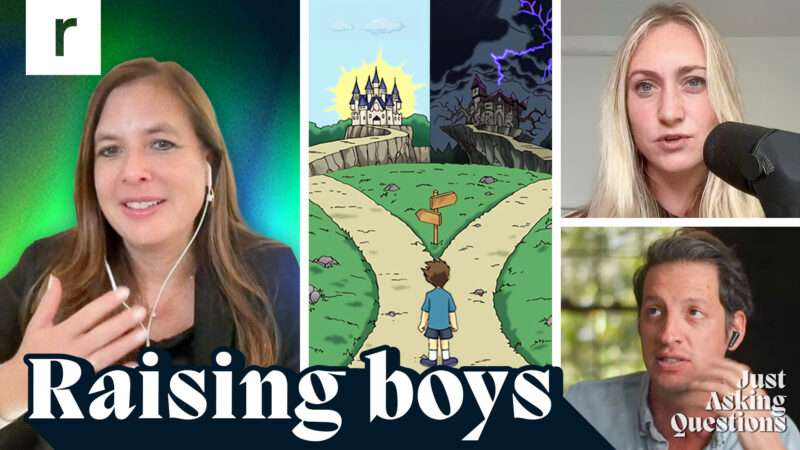
Are the boys okay?
For much of history, parents have preferred boys, perceiving them as the providers, the family legacy, the heirs to the throne. A dark consequence of China's 36-year-long one-child policy was a 120 boy to 100 girl birth ratio. But in 21st-century America, the script seems to have been flipped. The New York Times has run headlines like "Wanting Daughters, Getting Sons" and "It's a Boy, and It's Okay to be Disappointed." Boys are falling behind in school, are more likely to display behavioral problems, and are more likely to be both perpetrators and victims of violence. Shifting gender norms, changing conceptions of masculinity, and the pitched political battles around these questions have made boyhood—and parenthood—that much more complicated. Raising boys these days ain't easy.
Today's guest knows this all too well. Ruth Whippman is the author of BoyMom: Reimagining Boyhood in the Age of Impossible Masculinity, and the mother of three young boys. The book is about her experience as a modern "BoyMom" living in the hyper-progressive Bay Area, as well as what she learned from studying the psychological and sociological research on boys and from talking to boys and men across the country and the political spectrum about their experiences and, importantly to the theme of this book, their feelings.
Watch the full conversation on Reason's YouTube channel or the Just Asking Questions podcast feed on Apple, Spotify, or your preferred podcatcher.
Sourced referenced in this conversation:
- The New York Times: Wanting Daughters, Getting Sons
- The New York Times: It's a Boy, and It's Okay to Be Disappointed
- Gender differences in individual variation in academic grades fail to fit expected patterns for STEM
- Poverty hurts the boys the most: Inequality at the intersection of class and gender
- Loneliness around the world: Age, gender, and cultural differences in loneliness
- Provisional Estimates of Suicide by Demographic Characteristics: United States, 2022
- Andrew Tate's 10 Rules of Life on Rumble (discussed at 55:28)
Timestamps:
- 00:00 Intro Monologue
- 01:24 Introducing Ruth Whippman
- 02:20 Nature vs. Nurture in Boyhood
- 05:31 Emotional Vulnerability in Boys
- 06:31 Parenting Strategies for Boys
- 09:56 Cultural Shifts and Gender Preferences
- 14:01 Raising Boys in Progressive Areas
- 27:28 Challenges Boys Face in School
- 41:34 Traditional Masculinity and Emotional Connection
- 45:47 The American Psychological Association's Stance on Traditional Masculinity
- 53:16 The Hero's Journey and Masculine Expectations
- 55:28 Andrew Tate's Influence on Young Men
- 01:04:18 High Agency Worldview and Self-Help for Men
- 01:14:17 Promoting Emotional and Relational Skills in Boys
- 01:16:19 Final Thoughts and Reflections
- Producer: John Osterhoudt
The post Ruth Whippman: How Is Masculinity Changing? appeared first on Reason.com.







